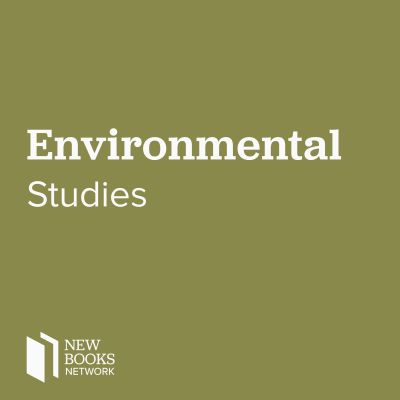Interviews with Environmental Scientists about their New Books Support our show by becoming a premium member! https://newbooksnetwork.supportingcast.fm/environmental-studies
https://newbooksnetwork.com/category/science-technology/environmental-studies/
Robert A. Voeks, "The Ethnobotany of Eden: Rethinking the Jungle Medicine Narrative" (U Chicago Press, 2018)
Jungle medicine: it's everywhere, from chia seeds to ginseng tea to CBD oil. In the US, what was once the province of counter culture has moved squarely into the mainstream of Walmart and Walgreens. In his excellent new book The Ethnobotany of Eden: Rethinking the Jungle Medicine Narrative (University of Chicago Press, 2018), Robert A. Voeks explains that while rainforests may indeed have much to offer in the way of medically useful compounds, the fanfare for tropical miracle medicines and superfoods has been largely in err, counterproductive, and at times prejudicial.
The jungle medicine narrative – the idea that indigenous shamans of the virgin rainforst hold the antidotes to many of humankind’s most pernicious woes – grew widespread in the 1970s after childhood leukemia was all but cured with the Madagascar periwinkle. But the subsequent efforts of pharmaceutical companies to accelerate innovation through bioprospecting had a much deeper historical precedent. Christopher Columbus earmarked West Indian medicinal plants on his first voyage and European imperialists attempted to more systematically appropriate native medical knowledge though the Enlightenment. By tracing this long colonial history, Voeks emphasizes that the hype of the last 50 years has been mostly just that; rather than reflecting the advancement of science, the jungle medicine narrative derives instead from racial ideologies in which indigenous peoples are associated with wild, virgin nature. It is little surprise, then, that blockbuster drugs have proven allusive. If the profits of appropriating medical knowledge have been overblown, so too, writes Voeks, has been the criticism. Examples of exploitative biopiracy can be found, but these are exceptions in what are mostly more complex and dynamic interactions between researchers and healers.
We have much to gain from abandoning the jungle medicine narrative. Without its simplicities, stereotypes, and essentialisms perhaps we can come to a better appreciation the variety of ways that humans make knowledge about the natural world and without its promises of panaceas perhaps we can better understand how this knowledge has and can yet sustain communities in the face of environmental and political changes.
Robert A. Voeks is Professor of Geography and the Environment at California State University, Fullerton.
Lance C. Thurner recently completed a PhD in History at Rutgers University with a dissertation addressing the production of medical knowledge, political subjectivities, and racial and national identities in seventeenth- and eighteenth-century Mexico. He is broadly interested in the methods and politics of applying a global perspective to the history of science and medicine and the role of the humanities in the age of the Anthropocene.
Learn more about your ad choices. Visit megaphone.fm/adchoices
Support our show by becoming a premium member! https://newbooksnetwork.supportingcast.fm/environmental-studies
